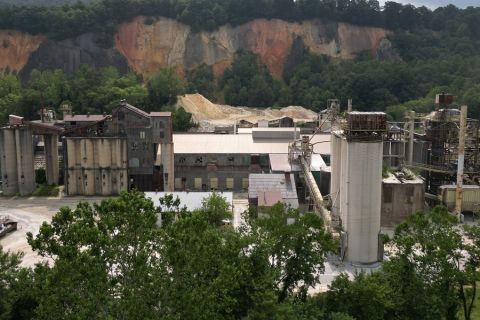The state of Pennsylvania has a unique place in oil and gas history. It was the site of the first oil discovery in the US with Col. Drake’s well in 1859, and it was one of the early titans of oil production in the country.
More recently, the state, which had seen declining production for decades, once again found itself on the industry map with the development of the Marcellus shale. Unlike its sibling states Texas and North Dakota, which also found themselves buffeted by the shale gale, Pennsylvania’s residents had become unused to the industry rumbling down their country roads. Environmental activists took advantage of this natural unease to turn the state into a hotbed of anti-fracing protests and challenges to state regulations.
Into this melee came Gov. Tom Corbett. Corbett took office in 2011, the year after the movie “Gasland” scared the socks off of Pennsylvanians with Marcellus shale under their homes and farms. Corbett recently spoke to a gathering at an industry breakfast in Houston about his efforts to understand and then take advantage of the wonders of the Marcellus.
Industry education
Despite having studied oil and gas law during his studies at St. Mary’s University in San Antonio, Texas, Corbett admitted that his understanding of the Marcellus shale during his tenure as state attorney general was less than thorough.
“At the time I was a little concerned about this Marcellus issue,” Corbett said. “I didn’t understand it, and the public didn’t understand it. It sounded too good to be true. And if you’re a prosecutor, you learn that if something sounds too good to be true, it isn’t true.”
One of the county commissioners arranged a trip to Fort Worth, Texas, to learn about the Barnett shale, and Corbett sent a deputy along. “They were down there for four or five days,” he said. “They came back and said, ‘It’s the real thing.’”
With this positive feedback, state officials were determined to embrace it as a resource. Given the state’s vast coal deposits, adding natural gas to the resource list has resulted in Pennsylvania ranking as the number two location in the world for Btu content.
“We started embracing the Marcellus and saying, ‘We can do this the right way,’” he said. The naysayers continue to state their case, he added, but he promotes a balancing of risk with what’s good for the entire population. He credits the industry with doing a good job of educating the local populations. “My goal is to do two things: embrace what Pennsylvania energy production can provide to the people of Pennsylvania in the way of jobs and a better way of life, and protect the environment at the same time. Adopt high but consistent and fair standards. We’re doing that in Pennsylvania.”
He mentioned a case that was tried during his time as attorney general where a municipality was bypassing meters and sending wastewater directly into the Allegheny River. The municipality had to float a US $40 million bond to pay the fine.
“It didn’t make me very popular in that municipality,” he said. “But they were cheating. If you cheat, you get smacked. But if you do it the right way, you should be treated the right way.”
Jobs and more jobs
By far the most positive local aspect of developing the Marcellus is the downward trend in the unemployment rate. In a state that has been hit hard by recessions and the downfall of the steel industry, this has been welcome news. Corbett said that the average annual salary in the oil and gas industry in Pennsylvania is about $80,000, while the average annual salary in the state as a whole is $47,000.
“It makes a huge difference,” he said.
Of course, there are negative impacts as well. Towns that once lacked stoplights are now experiencing traffic jams, and the state’s roads are often not up to the beating delivered by fleets of frac trucks. Rather than adopting a new severance tax on top of the other corporate, sales, and income taxes the industry already pays, as has been suggested by some of his opponents, Corbett persuaded the legislature to enact an impact fee.
“Is there an impact on the community when you’re drilling? Absolutely,” he said. “When you’re running pipelines? Absolutely. We are mindful of that in Pennsylvania and have worked closely with our local governments to adopt fair rules.”
The first year the impact fee was in place, the state raised $202 million. More than 75% of the impact fee revenue goes back to the counties and municipalities where drilling is occurring to help offset their costs.
Jealous neighbors
Across the state line in New York, where a moratorium on hydraulic fracturing has been in place since 2010, residents are envious of Pennsylvania’s success. “They want to be able to do this up there,” he said. “New York City has stopped it because it might affect their aquifers. But if you study this issue and examine the rules we and other states have put in place, you see that you can develop this resource safely while protecting the land and water.”
Meanwhile, he said, locals go back and forth across the state line and see the wealth that’s being generated. “A lot of people think it’s a boom that’s going to explode, that the bubble is going to burst,” he said. “I tell them we’re shaving ice off the tip of the iceberg.”
Welders wanted!
Pennsylvania is suffering the same types of shortages as other parts of the country that have active shale plays under development. While there is no shortage of higher education in the state, Corbett is encouraging schools to turn out technicians like welders in addition to scientists like geologists.
With this in mind, he has created a post-secondary committee to determine how best to evolve the state’s education mindset. “We’re trying to educate our young people on the career opportunities this shale play is providing,” he said. “We have first-rate schools here in Pennsylvania that are up to the challenge. I’m excited about what lies ahead.”
Recommended Reading
Ithaca Deal ‘Ticks All the Boxes,’ Eni’s CFO Says
2024-04-26 - Eni’s deal to acquire Ithaca Energy marks a “strategic move to significantly strengthen its presence” on the U.K. Continental Shelf and “ticks all of the boxes” for the Italian energy company.
Apollo to Buy, Take Private U.S. Silica in $1.85B Deal
2024-04-26 - Apollo will purchase U.S. Silica Holdings at a time when service companies are responding to rampant E&P consolidation by conducting their own M&A.
Deep Well Services, CNX Launch JV AutoSep Technologies
2024-04-25 - AutoSep Technologies, a joint venture between Deep Well Services and CNX Resources, will provide automated conventional flowback operations to the oil and gas industry.
EQT Sees Clear Path to $5B in Potential Divestments
2024-04-24 - EQT Corp. executives said that an April deal with Equinor has been a catalyst for talks with potential buyers as the company looks to shed debt for its Equitrans Midstream acquisition.
Matador Hoards Dry Powder for Potential M&A, Adds Delaware Acreage
2024-04-24 - Delaware-focused E&P Matador Resources is growing oil production, expanding midstream capacity, keeping debt low and hunting for M&A opportunities.





